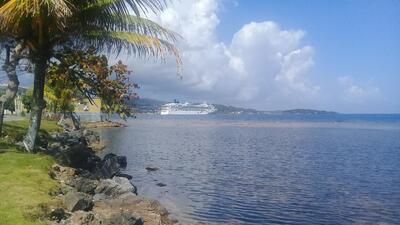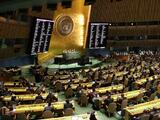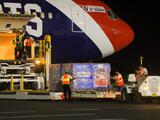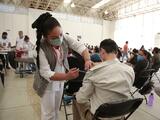Coronavirus: "In Central America, when it goes bad for the world, it goes worse for us."

Sherman Anderson has survived a category five hurricane and kept afloat during the global economic recession of 2008. But the impact of the coming crisis brought on by the coronavirus pandemic could be more severe, he says.
“People are scared, they’re not sure what to expect,” said the 32-year-old native of the Honduran island of Roatan, about 40 miles off the Caribbean coast of the mainland. Anderson’s eponymous tour business caters to cruise ship passengers. Ever since the U.S. State Department recommended against traveling on cruise ships, he’s been hit by a wave of cancellations.
Far and away the busiest cruise port in Central America, Roatan is a harbinger of the crisis that is spreading across the region faster than the virus itself. More than just an issue of public health, the panic and fear that precedes the virus will also succeed it, causing untold economic harm to the isthmus.
“In Central America, when it goes bad for the world, it goes worse for us,” said Ricardo Castañeda, an economist at the Central American Institute of Fiscal Studies, adding that the region is ill-prepared to fight a health epidemic and economic downturn at the same time.
To date, 52 cases have been confirmed in Costa Rica, Panama – with the only registered death in the region thus far – and Honduras, which announced the confirmation of two cases on Wednesday. There is skepticism, however, that the official number of confirmed cases could be much lower than the reality due to a lack of testing.
“The impact of the coronavirus places our health systems in check,” said Castañeda.
Over the past week, the governments of the region have enacted numerous containment measures, ranging from the cancelation of concerts and sporting events in Costa Rica to the suspension of flights from Europe to Guatemala and the even more dramatic national quarantine of El Salvador, which includes the suspension of all school activities for 21 days and the prohibition of entry of all foreigners who are not residents or diplomats in the country.
No antibacterial gel
Shortages of masks and anti-bacterial gel have been reported throughout the region, including in Costa Rica, where a state-owned distillery halted production of alcoholic beverages in favor of the alcohol used in anti-bacterial gel, similar to the repurposing of factories seen in World War II.
With the exception of Costa Rica, and to a lesser extent Panama, the region’s health systems lack the capacity to contain an epidemic. In the press conference on Wednseday in which he announced the national quarantine, the president of El Salvador, Nayib Bukele, admitted just as much.
“Neither Italy nor South Korea is prepared to stop [coronavirus], much less El Salvador or any country in the region,” said Bukele.
Honduras and Guatemala are the countries most susceptible to a large-scale outbreak due to the poor quality of their health systems. The two scored the worst in the region on the Healthcare Access and Quality Index (HQA), a measurement “based on mortality from causes amenable to personal health care,” with Honduras scoring the worst in all of Latin America (though the study was conducted prior to the complete collapse of Venezuela’s health system).
“In the case of Guatemala, the infrastructure has the capacity to attend to the population that there was in 1970, but not for the population that there is in 2020,” said Castañeda.
Honduras has the lowest physician density as a proportion of the population in Central America, roughly a third of that of Guatemala, meaning that in the event of a major outbreak many could face long waits to see a doctor. An estimated 1.5 million residents have no access to healthcare at all.
The chronic shortages in medicine and supplies throughout the Honduran health care system continue unaddressed despite ample time to prepare for the arrival of the virus.
“We didn’t even have antibacterial gel,” said Dr. Ligia Ramos, who works in the public health system in Tegucigalpa. “The intensive care unit doesn’t even have sufficient bio-security clothing.”
Critics say Honduras has also been slow to implement controls at borders and ports.
“I received a patient who’d come from Boston, Massachusetts that wasn’t even evaluated in the airport,” said Ramos. “They didn’t even take her temperature or information and the patient arrived on Sunday.”
Honduras has been dealing with a deadly dengue outbreak since last year that it has struggled to contain and the arrival of coronavirus will likely present an even greater challenge due to its highly contagious nature.
“Right now, there are two cases, but they are going to start to break out everywhere and we are not ready,” said Ramos.
The deficiencies in the public health systems in Honduras and Guatemala have been exacerbated by corruption. Perhaps the most emblematic of all was the embezzlement of hundreds of millions of dollars from the national health system in Honduras. At least part of the money ended up in the campaign coffers of President Hernandez.
Severe economic effects
The economic impact of the crisis could far outlast the existence of the virus.
“Owing to scientific advances, it’s expected that this will soon be controlled through a vaccine,” said Gerardo Corrales, an economist in Costa Rica. “However, the economic effects could be severe.”
Fear
“What’s happening principally is a fear squared – a fear of fear,” said Corrales, who compared the phenomenon to the flight of deposits generated by rumors that has brought multiple banks to their knees across the region in recent history.
Due to the Central America Free Trade Agreement, migration and general proximity, the region’s economy is heavily integrated with that of the United States. Any downturn in the U.S. economy inherently trickles down to Central America. Each country will be affected differently.
Experts say that the economies of Costa Rica and Panama are arguably the two most directly tied to that of the US. Costa Rica receives the most international tourists in the region and a significant share of foreign direct investment.
“Depending on the magnitude of the fear and the contagion that happens, there could be a contraction of our gross domestic product between a one-half and one percent, which would be significant above all because we have a very high unemployment rate at this moment,” said Corrales.
Panama’s robust financial sector is highly susceptible to the whims of foreign stock markets and as a regional transportation hub it will suffer greatly from a reduction in global travel.
Tourism
In terms of tourism, perhaps no country in the region has more to lose than Belize, where roughly 25 percent of the country’s GDP is tied to the sector, far more than any of its neighbors. On the flip side, the collapse of Nicaragua’s tourism industry in wake of the government’s oppression protesters that began in April 2018 and the subsequent isolation from the international community could mitigate the effect on that nation.
In the Northern Triangle, remittances are equivalent to roughly a fifth of GDP and are one of the primary motors behind consumption in the region. A reduction in remittances will have an immediate effect on consumption while also reducing the ability of local governments to collect taxes, which come primarily from sales taxes. Such a scenario would unleash a vicious cycle in which local governments will have less resources to combat the effects of coronavirus.
The short-term solution will be to seek out loans from international lending institutions. But the region is already heavily indebted, much more so than when the global financial crisis hit in 2008.
“The fiscal situation is worse now than it was in 2008,” said Castañeda. “That is to say that we might have to face another crisis but with much more limited tools than what we had more than a decade ago.”
In 2015, total debt as a percentage of the region’s GDP was just over 40 percent, but by 2019 it was over 47 percent, explained Castañeda.
Across the region, the agricultural sector could be harmed by disruptions in the global shipping industry and the crucial manufacturing sector, one of the largest employers, could screech to a halt if the virus spreads among staff members. Although the region could benefit from the recent drop in oil prices, the effect would not be sufficient to outweigh the other factors bringing the economy down.
“It’s a waterfall effect,” said Castañeda. “All these factors make the perfect storm.”
A legacy defining moment
Much like in the US where President Trump has his eye on the coming election and the effect the crisis might have on his prospects and legacy, many politicians in the region are doing the same.
“To the extent that you can call this a natural disaster, we’ve seen in the past that government’s mismanagement of a natural disaster always has profound political impacts,” said Eric Olson, a Latin America expert at the Seattle International Foundation. “It certainly had an impact in Honduras and El Salvador in the post-Hurricane Mitch period.”
The next election in Central America is that of the legislature in El Salvador just under a year from now. Current expectations are that President Bukele’s party will take control of Congress. The swift and decisive actions taken by his administration in response to the crisis could insulate himself and his party from any blame arising from the crisis.
Nicaragua and Honduras will hold general elections in the fall of 2021. The widespread discontent in both countries could become more acute in the event of an ineffective response by the governments to the crisis.
“These will be big opportunities for Hondurans and Nicaraguans to have a say about how their governments handled this crisis,” said Olson.
In particular, in Honduras, where the massive embezzlement of the public health sector was overseen by the party of President Hernandez – who was forced to admit that a portion of the funds ended up in his campaign coffers – a failure to contain the virus could pour salt on an open wound.
“The context is already very adverse and this is only going to make it more difficult,” said Olson.



